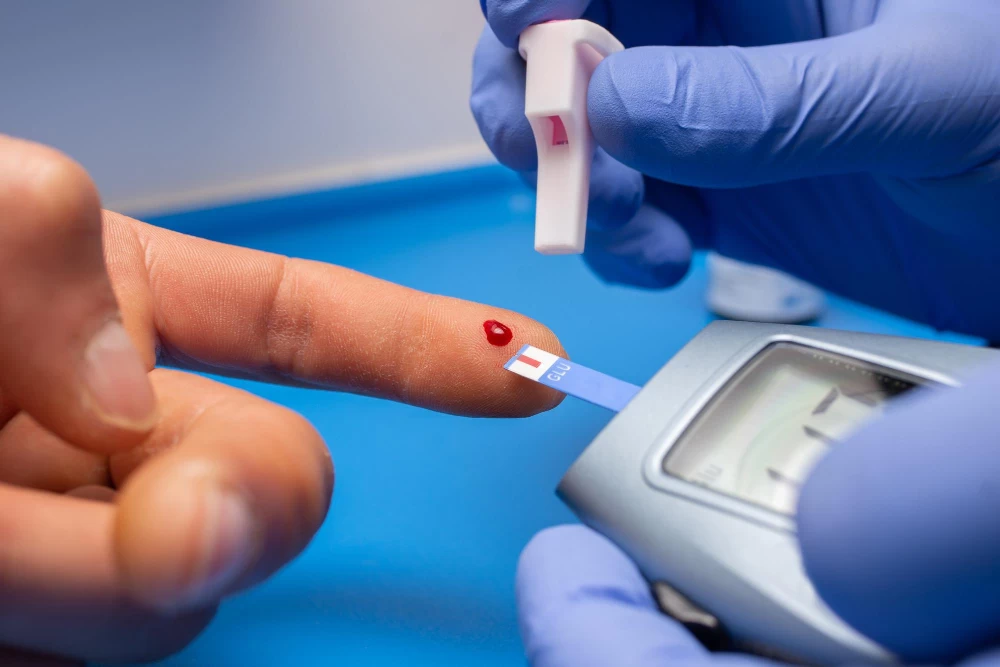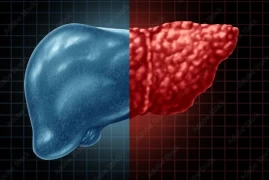
Complications of Diabetes
- Complications of Diabetes
- What is Diabetes?
- What Does Complication Mean?
- What Are the Complications of Diabetes?
What is Diabetes?
Diabetes is a metabolic disease in which blood sugar (glucose) levels in the body are high. Glucose is an important fuel used to provide energy to body cells. An organ called the pancreas secretes a hormone called insulin. Insulin controls the level of blood sugar by ensuring that blood sugar is taken into the cells.
Diabetes can occur in two main types:
Type 1 Diabetes: Type 1 diabetes is an autoimmune disease that usually begins in childhood or adolescence. The immune system mistakenly targets and destroys the insulin-producing cells of the pancreas. As a result, the body cannot produce insulin and blood sugar levels rise. Type 1 diabetes patients need daily insulin injections or the use of an insulin pump throughout their lives.
Type 2 Diabetes: Type 2 diabetes is a condition that usually occurs in adulthood, but has increased in childhood in recent years. In type 2 diabetes, body cells become resistant to insulin or the pancreas cannot produce enough insulin. In this case, it becomes more difficult for blood sugar to enter the cells and blood sugar levels rise. Type 2 diabetes is often associated with obesity, a sedentary lifestyle, and genetic factors. In the early stages, people with diabetes can often control their blood sugar levels with measures such as lifestyle changes, diet, exercise, and weight control. However, in some cases, medication or insulin injections may be required.
Diabetes can cause various complications if high blood sugar levels remain uncontrolled for a long time. That's why it's important for people with diabetes to check their blood sugar regularly, follow their treatment plan in collaboration with their doctor, and adopt healthy lifestyle habits.
What Does Complication Mean?
Before continuing the subject, it is useful to define the 'complication' which is frequently used in the medical literature. Complication means additional problems, side effects, or undesirable events that occur during the development of a disease or health condition. Especially in chronic or progressive diseases, complications can affect the course of the disease and complicate the treatment process.
What Are the Complications of Diabetes?
Diabetes mellitus is a condition in which blood sugar levels are high. Long-term uncontrolled diabetes can cause a number of complications. Here are some of the common complications of diabetes:
- - Heart Disease: High blood sugar levels damage the heart vessels, increasing the risk of heart disease. People with diabetes have a higher risk of coronary artery disease, heart attack, and stroke.
- - Neuropathy: Diabetes can cause nerve damage. This can lead to symptoms such as numbness, tingling, pain or numbness in the hands and feet. It can also affect the digestive system, urinary tract, and sexual function.
- - Retinopathy: Diabetes can affect the vessels in your eyes, causing vision loss. A condition called diabetic retinopathy occurs as a result of damage to blood vessels and weakening of the retinal layer.
- - Nephropathy: High blood sugar levels can damage the kidneys and cause impaired kidney function. Diabetic nephropathy can increase the risk of kidney failure.
- - Foot Complications: Diabetics may encounter foot problems as the healing process of wounds on the feet slows down. These wounds can become infected, and in severe cases, amputation may be required.
- - Infections:Diabetes can weaken the immune system, increasing the risk of infection. Especially urinary tract infections, skin infections and fungal infections can be seen more frequently in diabetic patients.
- - Other Complications: Diabetes can also cause skin problems, tooth and gum disease, bone and joint problems, sexual dysfunction, mental health problems and complications.
The important thing is that diabetes is well controlled and followed regularly. The risk of complications can be reduced by regular monitoring of blood sugar, appropriate diet and exercise, medication, and following doctor's recommendations.
Diabetes can show different course from person to person. For your diabetes, which is an insidious disease that should be followed seriously, it is important to follow the treatment protocol and recommendations that your specialist doctor will create for you.
Stay healthy…





